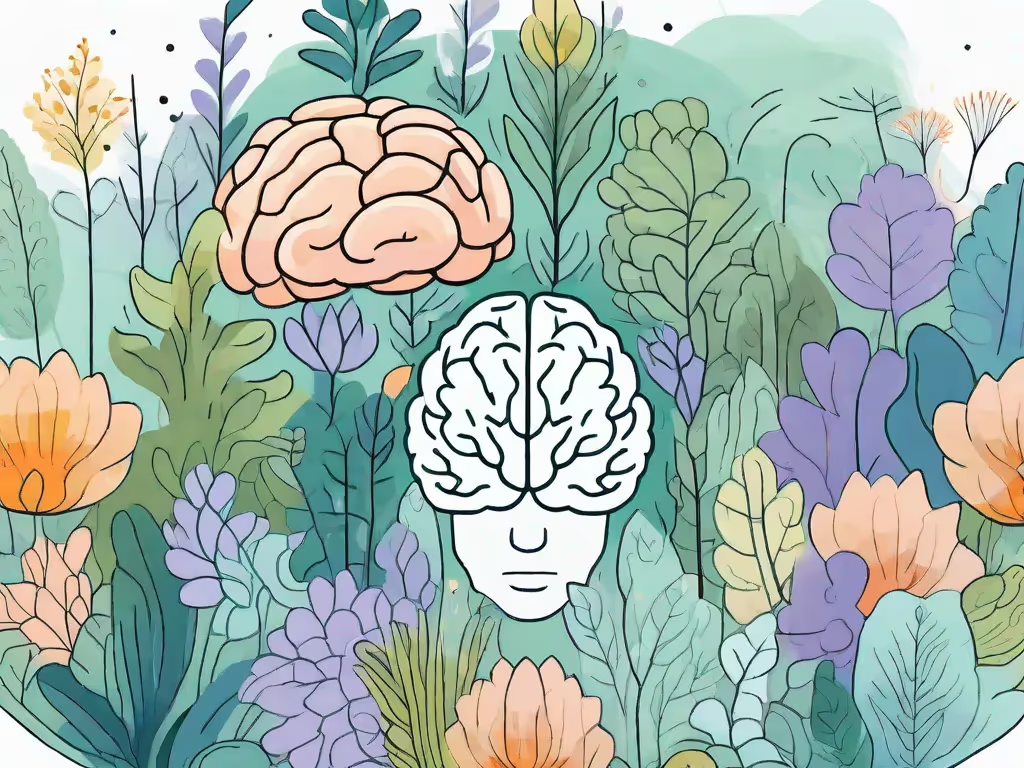Welcome to our comprehensive guide on how to learn hypnosis. In this article, we will take you through the step-by-step process of understanding hypnosis, exploring its benefits, and acquiring the essential skills needed to become proficient in this art. So, let's dive in and discover what hypnosis is all about.
Understanding Hypnosis
What is Hypnosis?
Hypnosis is a state of focused attention and heightened suggestibility, in which an individual is open to receiving and responding to positive suggestions. It allows access to the subconscious mind, where deep-rooted beliefs and patterns reside. By harnessing the power of hypnosis, one can effectively reprogram the mind and facilitate positive change.
When an individual is in a hypnotic state, their brain waves slow down, similar to the relaxed state experienced during meditation. This relaxed state allows the conscious mind to step aside, allowing the subconscious mind to take the lead. It is in this state that the individual becomes more receptive to positive suggestions and is able to tap into their inner resources for personal growth and transformation.
Hypnosis has been used for centuries in various cultures around the world. Ancient Egyptians, Greeks, and Romans all practiced forms of hypnosis for healing and spiritual purposes. Today, hypnosis is widely recognized as a valuable tool in the field of psychology and therapy.
The Science Behind Hypnosis
Contrary to popular belief, hypnosis is not some mystical or supernatural phenomenon. In fact, it is a natural state that we experience on a daily basis. Research has shown that during hypnosis, the brain enters a relaxed and highly receptive state, making it more susceptible to positive suggestions. This state is similar to the focused concentration we experience when engrossed in a book or movie.
When we are deeply engrossed in a captivating story or movie, our brain waves slow down, and we become fully immersed in the experience. This state of focused attention is known as the "hypnotic trance." It is in this trance-like state that the subconscious mind becomes more accessible, allowing for the exploration and transformation of deeply ingrained beliefs and behaviors.
Studies using brain imaging techniques, such as functional magnetic resonance imaging (fMRI), have provided scientific evidence of the changes that occur in the brain during hypnosis. These studies have shown that different areas of the brain become more active or less active during hypnosis, depending on the suggestions given by the hypnotist. For example, suggestions for relaxation may result in increased activity in the areas of the brain associated with relaxation and decreased activity in the areas associated with stress and anxiety.
Common Myths and Misconceptions About Hypnosis
Before we delve deeper, it is important to address some of the common myths surrounding hypnosis. Contrary to popular belief, hypnosis does not involve mind control or manipulation. Instead, it is a collaborative process between the hypnotist and the individual, where both work together to achieve a desired outcome. The individual is always in control and can choose to accept or reject any suggestion given during the session.
Another common misconception is that hypnosis is only effective for certain individuals or that some people are more susceptible to hypnosis than others. While it is true that some individuals may be more naturally responsive to hypnosis, anyone with an open mind and a willingness to participate can benefit from it. In fact, research has shown that the effectiveness of hypnosis is not determined by personality traits or suggestibility, but rather by the individual's motivation and engagement in the process.
Hypnosis is a versatile tool that can be used for a wide range of purposes. It can be used to overcome fears and phobias, manage stress and anxiety, enhance performance, improve sleep, and even alleviate physical pain. The possibilities are endless, and the benefits can be profound.
So, the next time you hear someone dismiss hypnosis as mere trickery or mind control, remember that it is a scientifically proven technique that can help individuals tap into their inner resources and make positive changes in their lives.
The Benefits of Learning Hypnosis
Personal Development
Hypnosis can be a powerful tool for personal growth and self-improvement. By effectively utilizing hypnosis techniques, one can overcome limiting beliefs, boost self-confidence, and achieve personal goals. Whether it is enhancing motivation, improving focus, or releasing fears and phobias, hypnosis can unlock your full potential.
Imagine being able to tap into the power of your subconscious mind and reprogram it to support your desired outcomes. With hypnosis, you can access the deepest parts of your mind and make positive changes that can transform your life. By harnessing the power of suggestion and visualization, you can create new neural pathways that align with your goals and aspirations.
Furthermore, hypnosis can help you develop a stronger sense of self-awareness. Through guided relaxation and introspection, you can gain insights into your thoughts, emotions, and behaviors. This heightened self-awareness can empower you to make conscious choices and break free from negative patterns that may be holding you back.
Therapeutic Uses
Hypnosis is widely used in therapeutic settings to address various issues such as anxiety, depression, and addiction. It can complement traditional treatments by helping individuals relax, reduce stress, and gain insight into their emotions. Additionally, hypnosis can be an effective tool for managing pain, improving sleep patterns, and enhancing overall well-being.
Imagine being able to find relief from chronic pain without relying solely on medication. Hypnosis can help individuals manage pain by tapping into the mind-body connection. By guiding individuals into a deep state of relaxation, hypnosis can help reduce the perception of pain and promote a sense of calm and comfort.
In addition to pain management, hypnosis can also be beneficial for improving sleep quality. Many individuals struggle with insomnia or other sleep disorders, which can have a significant impact on their overall well-being. Hypnosis can help individuals relax their minds and bodies, allowing them to enter a restful state and experience rejuvenating sleep.
Enhancing Communication Skills
Hypnosis can significantly enhance communication skills, both in personal and professional settings. By developing rapport-building techniques and honing voice control and pacing, one can become a more effective communicator. These skills can be particularly useful in areas such as public speaking, sales, and negotiation.
Imagine being able to captivate an audience with your words and effortlessly influence others. Hypnosis can help individuals develop a commanding presence and improve their ability to connect with others. By mastering the art of persuasive communication, you can become a more influential leader, salesperson, or negotiator.
Furthermore, hypnosis can enhance your listening skills, allowing you to truly understand and empathize with others. By learning to deeply listen and respond with empathy, you can build stronger relationships and foster a sense of trust and understanding in your personal and professional interactions.
Essential Skills for Hypnosis
Building Rapport
A fundamental skill in hypnosis is building rapport with your subject. Establishing trust, empathy, and understanding is crucial to create an environment conducive to hypnosis. Active listening, mirroring body language, and maintaining a non-judgmental attitude are some effective techniques for building rapport.
Voice Control and Pacing
Your voice is a powerful tool in the hypnosis process. Learning to modulate your voice, using tone, rhythm, and pacing, can significantly impact your subject's level of receptivity. By matching their natural breathing pattern and speaking in a calm and soothing manner, you can induce a state of relaxation that facilitates effective hypnosis.
Induction Techniques
Induction is the process of guiding an individual into a hypnotic state. There are various induction techniques, such as progressive relaxation, visualization, and eye fixation. Mastering different induction methods allows you to personalize your approach based on your subject's unique preferences and needs.
Step-by-Step Guide to Learning Hypnosis
Step 1: Self-Hypnosis
Begin your journey by practicing self-hypnosis. This involves inducing a hypnotic state in yourself, allowing you to experience the process firsthand. Browse online resources, attend workshops, or use hypnosis apps to learn various self-hypnosis techniques. With regular practice, you can deepen your understanding of hypnosis and cultivate the necessary skills.
Step 2: Practicing on Others
Once you feel comfortable with self-hypnosis, expand your knowledge by practicing on willing friends or family members. Start with simple inductions and suggestions, gradually increasing the complexity as you gain confidence. Focus on honing your communication skills, fine-tuning your voice control, and observing the responses of your subjects.
Step 3: Advanced Techniques
As you progress in your hypnosis journey, explore advanced techniques and deepen your understanding of hypnosis theory. Study different hypnotic phenomena, such as age regression and parts therapy, and learn to address specific issues within a therapeutic context. Continuously expand your knowledge through workshops, books, and ongoing practice.
Learning hypnosis is a transformative journey that requires dedication, patience, and practice. By understanding the principles of hypnosis, appreciating its benefits, and acquiring the essential skills, you can unlock the full potential of this art and positively impact the lives of others.
As you embark on this exciting endeavor, consider utilizing tools such as the Aura Health App. This user-friendly app offers a wide range of guided hypnosis sessions and resources, helping you enhance your learning experience. With the Aura Health App, you can take your hypnosis practice to new heights and unleash your inner potential.
Aura is Your All In One App for Meditation, Mindfulness Wellbeing
Find peace every day with one app for your whole well-being. There is no one-size-fits-all solution to mental well-being. Aura is the first all-in-one wellness app that learns how to best help you. Discover an endless library of expert-created tracks for your well-being, all taught by the world’s best coaches, therapists, and storytellers. With Aura's personalized recommendations, you can find peace every morning, day and night.



.webp)






.avif)

%20(1).avif)


.avif)
.avif)
.webp)


.avif)


















































































































.avif)

















.svg)









